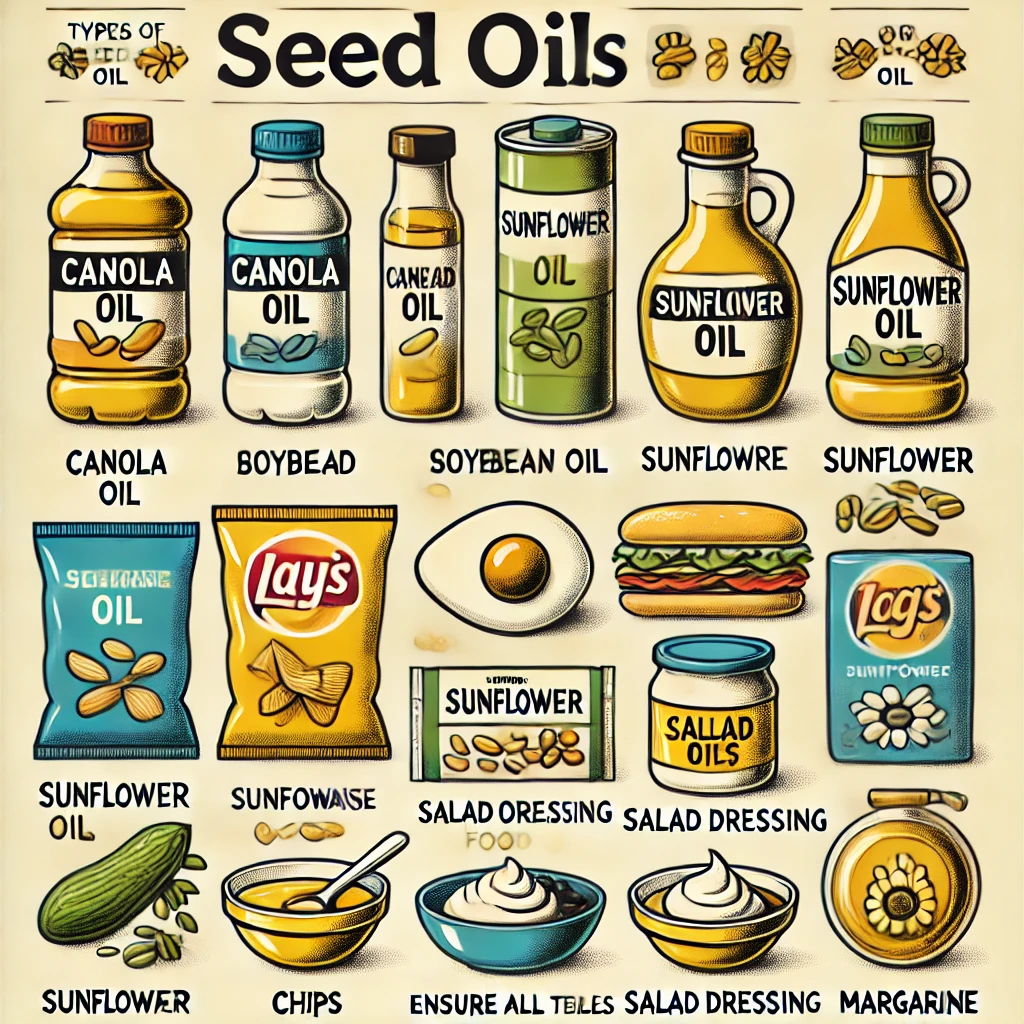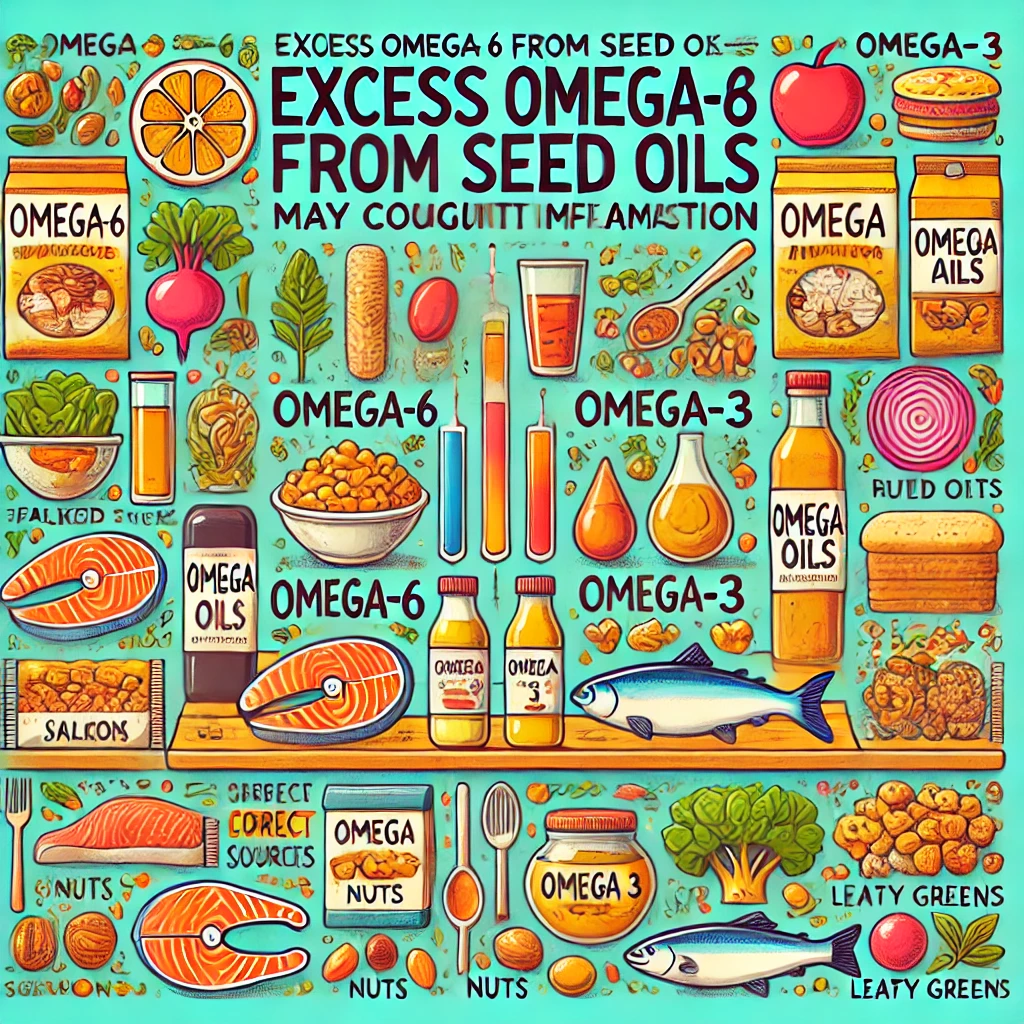My Experience with Seed Oils

When I first started using seed oils like sunflower, canola, and soybean oil, I didn’t think about how they might affect my health. These oils were in a lot of foods I cooked and ate, and they were easy to find. This discovery led me to research seed-oils and if they are bad for our health. But as I kept using them, I noticed they might be causing some problems. Here’s what I learned about seed oils and inflammation.
First Signs That Seed Oils Could Affect My Health
After a while, I began feeling changes in my body. To put it mildly, I had more aches, my joints felt stiff, and I’d get skin flare-ups more often. I didn’t know why at first, but I wondered if my food choices, especially seed oils, could be the reason.
So, I started paying attention to what I ate and how I felt. To prove my point, here is a bit of what I noticed:
| Observation | Before Seed Oils | During Seed Oils |
|---|---|---|
| Joint Stiffness | Rarely | 3-4 times a week |
| Minor Aches | Occasionally | Nearly daily |
| Skin Flare-Ups | Rarely | 2-3 times a month |
I was curious and began researching the link between seed oils and inflammation. Many studies suggest that seed oils, especially those high in omega-6 fats, might lead to more inflammation if they aren’t balanced with enough omega-3s.
What to Know About Seed Oils and Inflammation
Seed oils come from plants and are used a lot in cooking and packaged foods. The problem? Seed oils contain a lot of omega-6 fatty acids. Our bodies need omega-6 and omega-3 fats, but too much omega-6 without enough omega-3 can lead to inflammation. Since our usual diet has more omega-6 than omega-3, it can throw things out of balance.
Studies on Seed Oils and Health Issues
Here’s what some studies say about omega-6 fats and inflammation:
| Study | Finding |
|---|---|
| 2018 Study | High intake of omega-6 fats promotes inflammation |
| 2015 Study | Balancing omega-3 and omega-6 can lower inflammation and support heart health |
| 2020 Review | Limiting seed oils may help reduce inflammation-related health issues |

It is important to note that these findings helped me decide to cut back on seed oils. Learning about the effects of seed oils has made me more careful about what I eat.
Where Dangerous Oils Are Found in Everyday Foods
Seed oils are common in many foods we eat every day. In fact, sometimes without us even knowing it. Here’s a quick look at where they’re usually found:
| Seed Oil | Common Foods Containing It |
|---|---|
| Canola Oil | Salad dressings, mayonnaise, baked goods |
| Soybean Oil | Snacks, margarine, fast foods |
| Corn Oil | Chips, fried foods, processed foods |
| Sunflower Oil | Packaged snacks, some margarines |
| Safflower Oil | Salad dressings, some margarines, baked goods |
Knowing where seed oils are can help you decide if you want to avoid or cut back on them.
Healthier Alternatives to Seed Oils
After learning more, I started using healthier oils. Here are some options I tried:
- Olive Oil: Great for reducing inflammation and heart health
- Coconut Oil: Good for metabolism and brain support
- Avocado Oil: High in nutrients, supports skin health
These oils not only taste good but also help me stay healthier.
Ways I Cut Down on Seed Oils
To avoid seed oils, I made a few changes:
- Reading Labels: I check food labels to spot seed oils like soybean and corn oil.
- Cooking at Home: Making meals at home gives me control over the oils I use. In fact, we do not know what oils restaurants use in their cooking. This makes our choice to eat at home better for our health.
- Choosing Whole Foods: I eat more fresh foods, which usually don’t have seed oils.
- Making My Own Dressings: Instead of store-bought dressings, I make my own with olive oil and herbs.
- Asking at Restaurants: When eating out, I ask about the oils used and request alternatives.
These changes have helped me manage inflammation and feel better.
Adding Anti-Inflammatory Foods to My Diet
To help reduce inflammation, I added more foods that fight it, like:
- Fish like salmon
- Leafy greens like spinach
- Fruits like blueberries
- Nuts like almonds
- Olive oil
I also added spices like turmeric and ginger for their anti-inflammatory benefits. These small changes made a big difference in my health and helped me take control of my diet.
For more information, check out articles on seed oils and their effects or learn more about the benefits of alternatives like olive oil.

